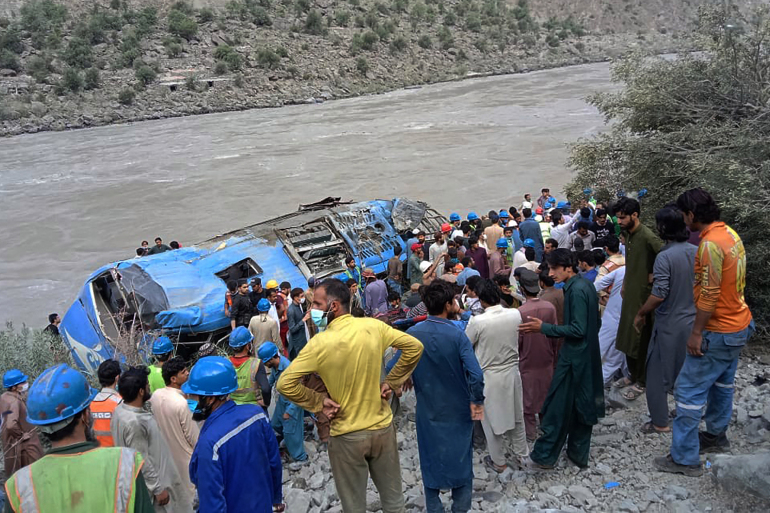
China Turns Victim Of Pakistan’s Islamist Problem
After nine Chinese nationals were killed last week near Pakistan’s Das hydroelectric dam, the Pakistan government had initially said that the bus in which they were travelling had suffered a “mechanical failure” and it was a gas leak but officials eventually admitted that the incident was a terror attack after Beijing decided to send its own investigators.
Following this, China postponed the work on USD 65 billion China Pakistan Economic Corridor, a network of roads and infrastructure projects. This is said to be Beijing’s biggest ever investment project overseas and an important part of China’s Border Road Initiative, author Kunwar Khuldune Shahid reported in The Spectator.
While no terrorist group has taken the responsibility for this attack but the blast happened during the time when multiple terrorist groups are targeting Beijing’s presence in Pakistan,
The CPEC project, which was started in 2015, connects Balochistan with China’s Xinjiang but Baloch separatists have targeted Chinese projects in the province. The region was designated an independent state in the months before the partition but ended up being consumed by Pakistan.
Meanwhile, from the last few years, China’s dominance in Pakistan has been swiftly increasing with militias like the Balochistan Liberation Army launching multiple terror attacks aimed at Chinese industry.
But the majority of these high-profile attacks have come from the Pakistani Taliban. In April, the group launched a car bomb at the province’s most luxurious hotel where the Chinese ambassador was staying, Kunwar Khuldune Shahid reported.
Even the Uighur refugees living in Pakistan have reportedly been abducted and handed over to the Chinese authorities. This shows that Pakistan is now under the complete influence of Beijing.
But there’s one front where Pakistan is not falling in China’s line i.e; Pak’s failure to completely eradicating jihadist groups in the country.
The problem with Islamabad is that the country’s foreign policy is directed towards promoting the Taliban in neighbouring Afghanistan. Pakistan is continuing a decades-old plan for South Asia, Kashmir and Kabul in particular, with the belief that an Islamised region would align with Pakistan’s interests, says Shahid.
But after these persistent attacks on Chinese nationals, now Pakistan has to convince Beijing that it can protect Chinese infrastructure and citizens from the terrorist groups when it has failed to protect its own. (ANI)



